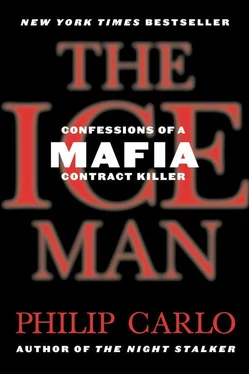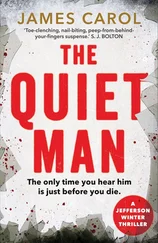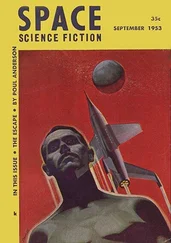Barbara’s aunt Sadie was more like a mother to Barbara than Genevieve had ever been. Cold and aloof, Genevieve was not a people person. She didn’t seem to like anyone. She’d go to work, come home, eat, watch a little TV, and go to sleep; that was her life; that’s what life was all about.
Aunt Sadie, on the other hand was outgoing, warm and friendly, loved movies, loved opera, enjoyed going out, had a giving, effusive southern Italian way about her. Sadie was also a crafty, cunning woman, as is also the way of southern Italians, of Neapolitans. If Barbara, who was surely more like a daughter than a niece, wanted to be involved with this big Polish guy, that was okay with her. But Aunt Sadie wanted to know more about him—who he was, where he came from, what kind of family he had. Whenever the subject of his family came up, Richard became quiet and changed the subject. Sadie wondered why, and she resolved to make it her business to find out. Her brother Armond was a part-time cop in Cliffside Park, and with his help, Sadie found a private investigator who, for a fee, went to Jersey City and Hoboken and began snooping around and asking questions about Richard Kuklinski.
It didn’t take long for him to find out that Richard was a player, that he hurt a lot of people, that he hijacked trucks, that he had a hair-trigger temper, that he had drinking and gambling problems; and that he had associations with organized crime. He even heard rumors that Richard had murdered people in sudden bar altercations, and for money! Mama mia! Richard had no kind of police record, but he had a reputation as a dangerous guy: a thug, a hustler with a violent streak who carried a gun and a knife. All this Armond summarily reported back to Sadie. She was appalled and immediately dispatched Armond to go to talk to Richard, intent upon ending the relationship before it went any further. Armond found Richard in a Jersey City bar and said he needed to talk with him….
“Sure,” Richard said, wary that Armond had suddenly come to Jersey City to talk with him: “What’s on your mind?”
“Barbara,” Armond began, “is a good girl—”
“Yeah, I know. That’s why I like her,” said Richard.
“Look, I found out all about you, Richard. I know who you are. And me… me and the family want you to stay away from Barbara.”
“Really,” Richard said, his lips tightening, his eyes narrowing.
“Yeah, really,” Armond told him, acting tough.
“And what if I don’t?” Richard asked.
“It won’t be good for you,” Armond said.
“You threatening me? Are you threatening me, Armond?”
“I’m telling you to leave Barbara alone. She’s a good girl.”
“My intentions toward her are only honorable.”
“You are married with two kids…. What’s honorable about that?”
“I’m getting a divorce.”
“You aren’t for her.”
“Says who?”
“Me. Says me. The family wants you to steer clear of Barbara. Don’t you get it?”
“Yeah, well, I ain’t, okay.”
“That wouldn’t be… good for you.”
“You are threatening me. Look, Armond, if you wanna go to war over this that’s fine with me, but I can tell you right now, right here, like a friend, that only one of us is going to come out of it, and it ain’t—listen to me—it ain’t going to be you. Take that to the bank.” Richard let his words sink in. Armond was not a particularly tough man. He was tall and thin, not powerful. But he had fought in World War II, was highly decorated, had killed a lot of Japanese soldiers, and he did carry a gun. He had one on him right now, a .38 with a four-inch barrel, his service revolver. Richard had two guns on him. They stared at each other.
“My niece is a good girl!” Armond repeated with firm conviction. “Don’t you get it?”
If Armond hadn’t been Barbara’s uncle, Richard might’ve taken him outside and shot him there on the spot, then got rid of his body. Instead, he said, “Like I told you, my intentions toward Barbara are only honorable. Tell the family that; tell them I’m getting a divorce; tell them I love Barbara and’ll never do anything to hurt her. Tell them that…. Okay?”
“Okay, I will,” Armond said, seeing clearly the resolve in Richard’s face, and he went back to his sister Sadie and told her what Richard had said.
“I’ll talk to Barbara,” Sadie said, and she sat Barbara down and told her all she had learned, none of which was particularly troubling to Barbara. Whatever Richard had done, she said, was in the past. “He’s nice and kind and real good to me,” Barbara said, trying to defend the indefensible.
“He’s married with children,” Sadie said. “He’s a gangster.”
“He’s getting divorced,” Barbara said. “He’s no gangster. When I met him he was working. Working hard. He got fired for talking to me—you believe that? For just talking to me.”
“He’s hurt a lot of people,” Sadie said.
“I’m sure they deserved it,” Barbara said, having no idea of how severely Richard hurt a lot of people: that indeed he was a full-blown serial killer.
“Barbara,” Sadie said, “I love you. I’m only telling you this because I care. I don’t think you know what you’re getting involved with here.”
“I know, and I love you too, and I appreciate your caring, your looking out for me. Listen, we’re only dating, okay? I mean, I’m not marrying him; we aren’t going to rush off and elope. Don’t worry. Please, don’t worry.”
“But I do. I don’t want to see you hurt. You can do better than this guy, I promise you.”
“We are only dating,” Barbara repeated.
“Okay… but you be careful. Don’t go falling in love with him; don’t go letting him make you pregnant.”
“Of course not,” Barbara said, and hugged her aunt Sadie long and hard. “I love you.”
“I love you,” Aunt Sadie said, having a very bad feeling deep inside her gut about this Richard Kuklinski from Jersey City with the shy, crooked smile and shifty eyes.
That Christmas Barbara decided to invite Richard to join her family for both the Christmas Eve fish dinner and the Christmas Day meal, which would be a customary five-course feast lasting all day and part of the night. For Barbara’s family, like most Italian American families across the country, Christmas was a special time of year—a wonderful opportunity to give and laugh and sing and eat and bring everyone together. Barbara, a talented artist, painted colorful Christmas scenes on the windows with watercolor paint, and there was a big tree in the living room.
Barbara saw this as a good opportunity for her family to get to know how kind and polite and sweet Richard really was. When Barbara told her mother she wanted to invite Richard for the holidays, Genevieve was not happy, but she reluctantly accepted it, as did the rest of the family. If that’s what Barbara wanted, so be it. Unless she had her way, she’d have a long, sour face, and would let everyone know she wasn’t happy.
When Barbara told Richard she’d like him to join her family over the holidays, he was caught off guard, but he was pleased too, and readily accepted the gracious invitation and looked forward to it. He knew Barbara was close to her people, and if he wanted her, he knew they had to accept him. Simple. But he was nervous. His family never had a Christmas tree or any special foods; for him Christmas had meant nothing—zero. He usually went to a diner to eat, and that was it. No big shakes. This would be a whole new experience.
18. This Is for You, Richard
December 24, 1961, Christmas Eve, Richard arrived at Barbara’s house in North Bergen.
Читать дальше












